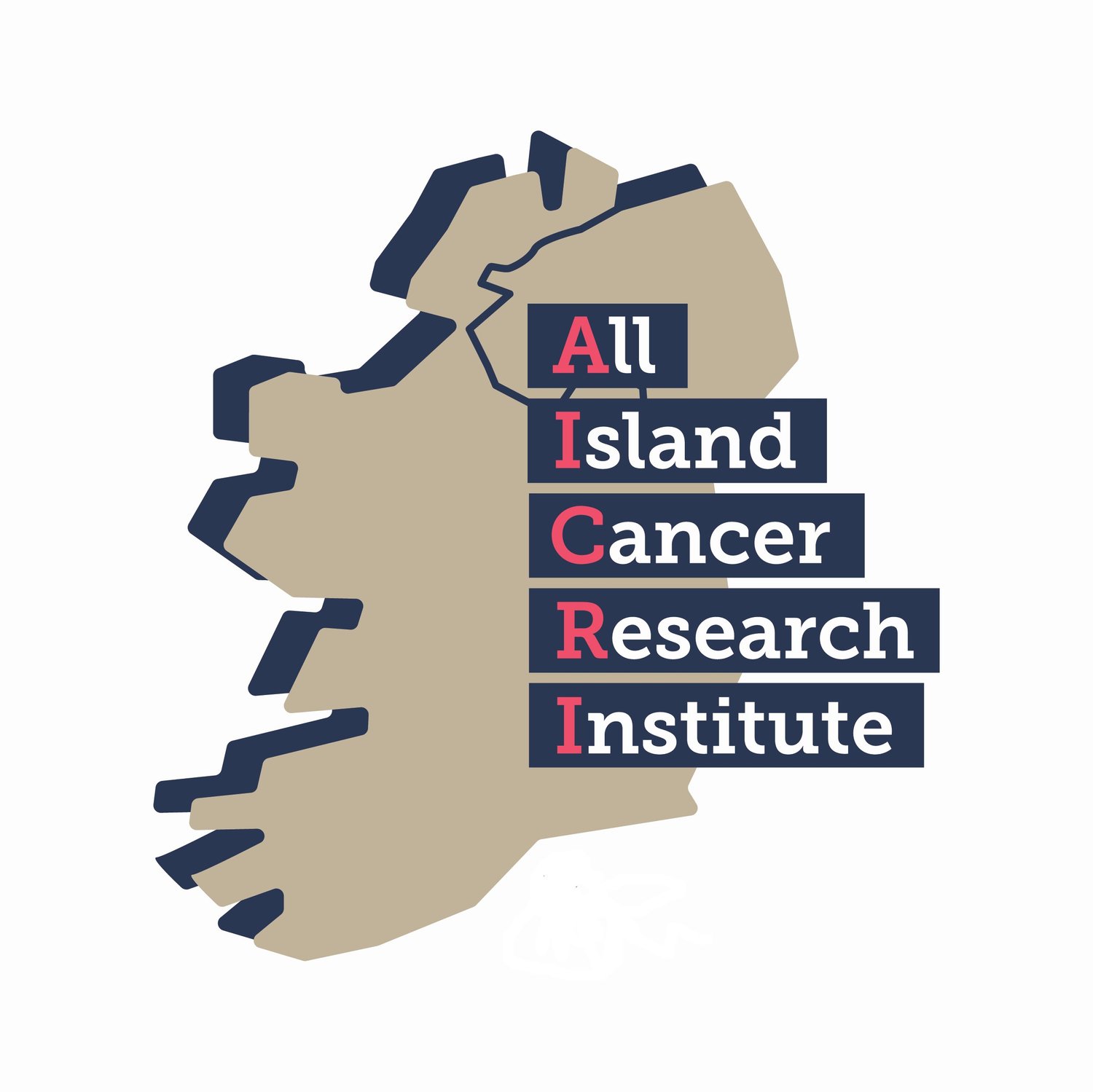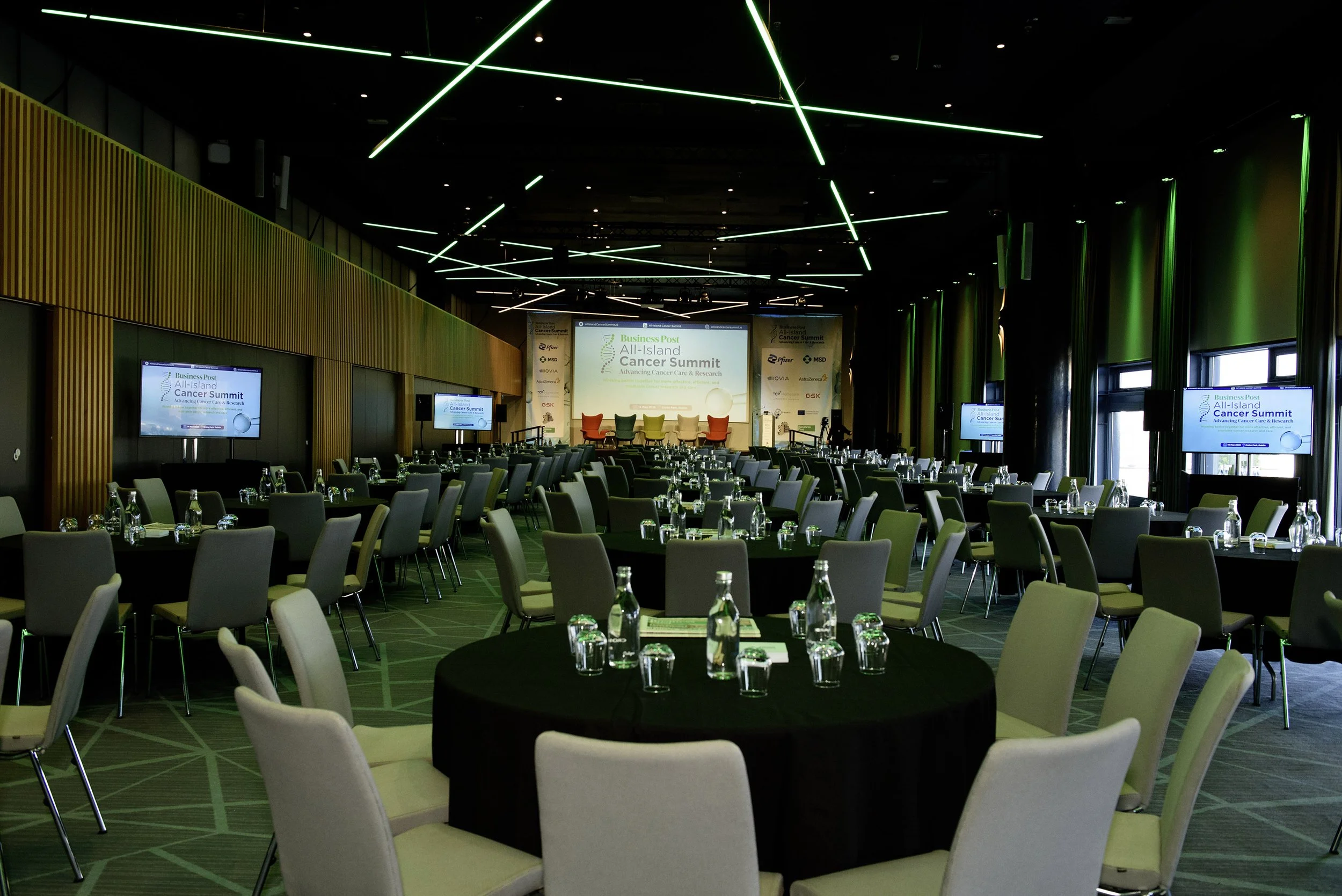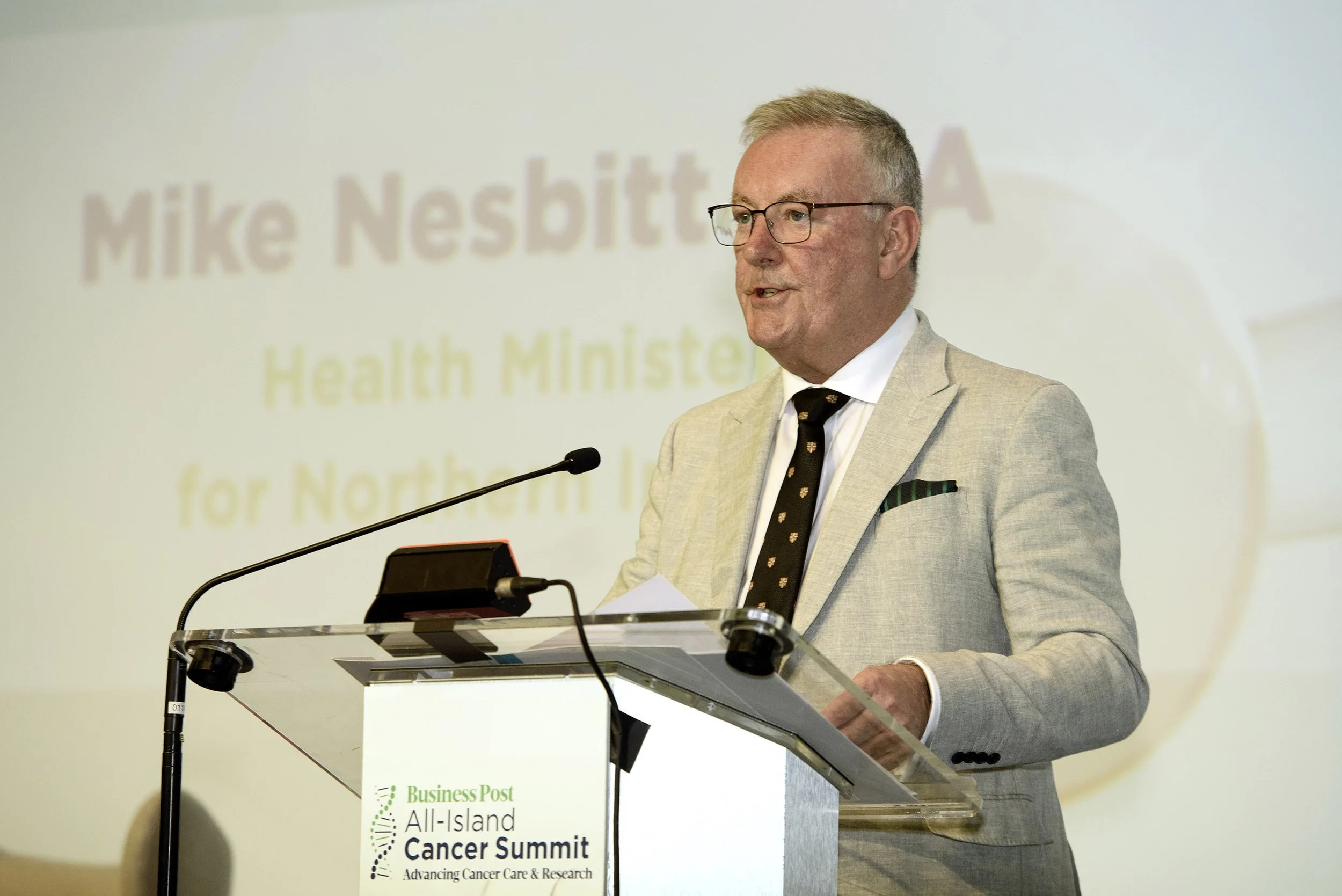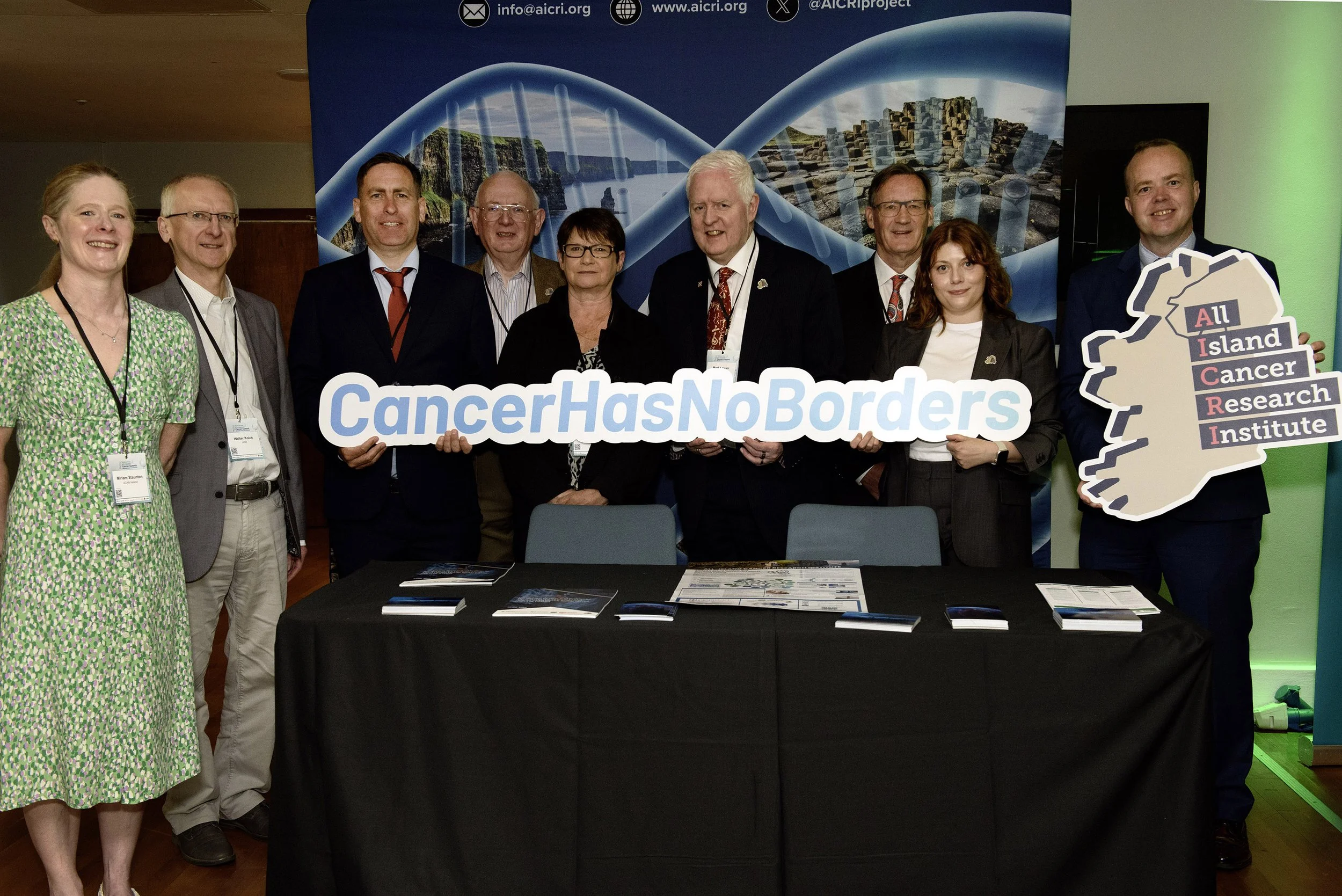All-Island Cancer Summit 2025: A New Era for Cancer Collaboration Across Ireland
14 May 2025 | Croke Park, Dublin
More than 250 delegates from across the island gathered at Croke Park for the inaugural All-Island Cancer Summit, co-hosted by the Business Post and the All-Island Cancer Research Institute (AICRI). The event brought together leaders in research, healthcare, policy, industry and patient advocacy to address one pressing question: how can Ireland, both North and South, work together to transform cancer care and research outcomes?
Framed around keynote addresses, report launches, thematic panels and breakout discussions, the day reflected a growing urgency to develop cross-border approaches to cancer prevention, diagnosis, treatment, and survivorship. What emerged was not only a shared vision, but the beginnings of a coordinated roadmap for action.
Opening Reflections
The event opened with remarks from Laura Dunlop (Business Post) and Chair Audrey Carville (RTÉ), followed by Professor Ristéard O’Laoide, National Director of the HSE National Cancer Control Programme, who set the tone for the day by emphasising the importance of collaboration and system transformation.
In the keynote address, Professor Christine Chomienne, Vice-Chair of the European Commission’s Horizon Europe Cancer Mission Board, outlined the EU’s ambition to improve the lives of three million people by 2030 through advances in prevention, early detection, diagnostics, and access to equitable care. She highlighted the need for cross-sector collaboration, digital transformation, and co-design with patients. Initiatives such as the 4P-Cancer project and Premier CoLab were cited as models for impactful, citizen-focused research.
Groundbreaking Reports Launched
Two pivotal reports were launched during the morning plenary.
“Cancer Knows No Borders”, presented by Professor Deirdre Heenan (Ulster University), proposed a strategic blueprint for integrating cancer care and research across the island. Moving beyond symbolic cooperation, the report called for system-level alignment, mutual accountability, and stronger political leadership to support lasting, cross-border collaboration.
This was followed by the launch of “Harnessing the Power of Data to Transform Cancer Research, Care and Innovation across the Island of Ireland”, authored by Professor Mark Lawler (Queen’s University Belfast), Professor Aedín Culhane (University of Limerick), and patient advocate Siobhan Gaynor. Developed through the eHealth Hub for Cancer, the report issued a powerful call to action, outlining a seven-point cancer data plan to address the major gaps in how cancer data is currently collected, shared and used.
It underscored the urgent need for reform of cancer information systems to improve real-time decision-making, understand health inequalities, and enhance care for patients with metastatic and recurrent disease. Currently, recurrence data is not routinely captured in national cancer registries in either jurisdiction. The report advocates for ensuring patients have access to their own digital records, improved integration of genomic and metastasis data, and the acceleration of digital infrastructure across both systems.
From Vision to Implementation: Strategic Dialogue in Focus
Panel discussions throughout the morning unpacked how to turn strategy into action. A session featuring representatives from the Higher Education Authority, Health Research Board, Pfizer, and AICRI discussed the building blocks required to deliver a cohesive all-island cancer research strategy. Among the priorities identified were aligned funding mechanisms, interoperable research infrastructure, and greater involvement of patients at every stage of the research cycle.
Another panel, featuring contributions from the Irish Cancer Society, MSD Ireland, and patient advocates, put forward a “policy wishlist” for cancer reform. They called for metastatic cancer to be prioritised in national cancer strategies, greater investment in advanced cancer research, and consistent approaches to survivorship care, including automatic referral to palliative services for patients with metastatic disease.
Health Policy and Political Support
Delivering the Northern Ireland Government Address, Health Minister Mike Nesbitt MLA affirmed his department’s commitment to working collaboratively with stakeholders across the island. He emphasised that sustainable cancer reform must be grounded in data, transparency, and mutual learning between systems.
Breakout Streams: Prevention, Treatment and Innovation
Attendees took part in one of three breakout streams aligned to core cancer priorities.
Stream 1 explored key enablers of cancer research across the island, including clinical trials, genomic medicine, and data integration.
Speakers highlighted the need for earlier and broader patient access to clinical trials, particularly in blood cancers where trials are often seen as a last resort rather than an early option. Administrative burdens and limited resourcing continue to delay trial activation, underscoring the need for streamlined processes and better support for clinical teams.
The potential of artificial intelligence to enhance oncology research was discussed, with emphasis on the need for clinical integration, data governance, and workforce training.
On genomics, panelists stressed the value of creating an Irish-specific dataset to support precision oncology, noting that international genomic references may not reflect local population needs. Greater access to early-phase trials was also identified as a priority, especially for rare cancers.
The session reinforced the need for a coordinated, well-resourced research ecosystem that supports innovation and patient-centred care.
Stream 2 focused on cancer prevention and early detection, including presentations on the AI-CAN Oesophageal Research Network and the All-Ireland Lung Biopsies Consortium. A panel discussion on patient outcomes highlighted the value of public health integration and community-level insights in shaping effective interventions.




Stream 3 addressed treatment access and survivorship, with discussions on health inequalities, inclusive care models, and pathway design. The Women’s Health Initiative was presented as a case study in survivor-informed service design, while a final panel explored how patient experience can drive meaningful care innovation.
Innovation at the Forefront: AI, Drug Discovery, and Therapeutic Futures
The afternoon programme tackled some of the most dynamic and emerging areas in cancer care, from system-level reform to next-generation therapies.
A panel on shared care and community-based cancer support explored the role of integrating services closer to home for patients. Speakers from the Irish Cancer Society, University Hospital Galway, and TCP Homecare reflected on how decentralising aspects of care can ease the burden on acute hospitals, improve quality of life for patients, and enable more holistic, person-centred support. The discussion acknowledged the operational and communication challenges that come with scaling such models, but also underlined the need for long-term planning and investment to make community oncology a viable reality across Ireland.
In the session on artificial intelligence, speakers from UCD, Mater Hospital, IQVIA, and the patient community examined how AI could revolutionise diagnostics and personalisation in oncology. However, the panel cautioned that gaps in digital literacy and public trust continue to present barriers to adoption. They called for a reframing of AI as “augmented intelligence,” and proposed clinical trials to validate AI tools alongside targeted workforce training programmes.
A further panel on drug discovery and therapeutic innovation focused on developments led by the Future Medicines Institute (FMI) in Northern Ireland. The discussion introduced the Art of Therapeutics initiative, designed to foster translational researchers and biotech entrepreneurship across the island.
Panellists also addressed advances in cancer vaccine development, including the success of prophylactic vaccines like HPV in other countries, the potential of personalised vaccines now in late-stage trials, and intratumoral vaccination as a promising strategy to trigger immune responses locally. Despite progress, challenges remain around cost, infrastructure, and the long-term rollout of these therapies.
Looking Ahead: Shared Priorities and a Call to Action
As the day concluded, several themes emerged with clarity. A coordinated approach to data, digital infrastructure, and patient-centred research must become the foundation of future collaboration. There is a clear mandate to include advanced and metastatic cancer more explicitly in national cancer plans, to invest in longitudinal data capture, and to develop shared clinical guidelines that extend across both jurisdictions.
The Summit also underscored the need for political and institutional support to sustain momentum. From AI deployment to equity in access, from innovation pipelines to survivorship models, the message was consistent: success will depend on moving from conversation to concerted action.
We would like to thank the Business Post for their commitment to convening this important event. The success of the inaugural All-Island Cancer Summit highlights its value to the research, policy, and healthcare communities, and we hope it will become a regular fixture in the calendar for years to come.

































